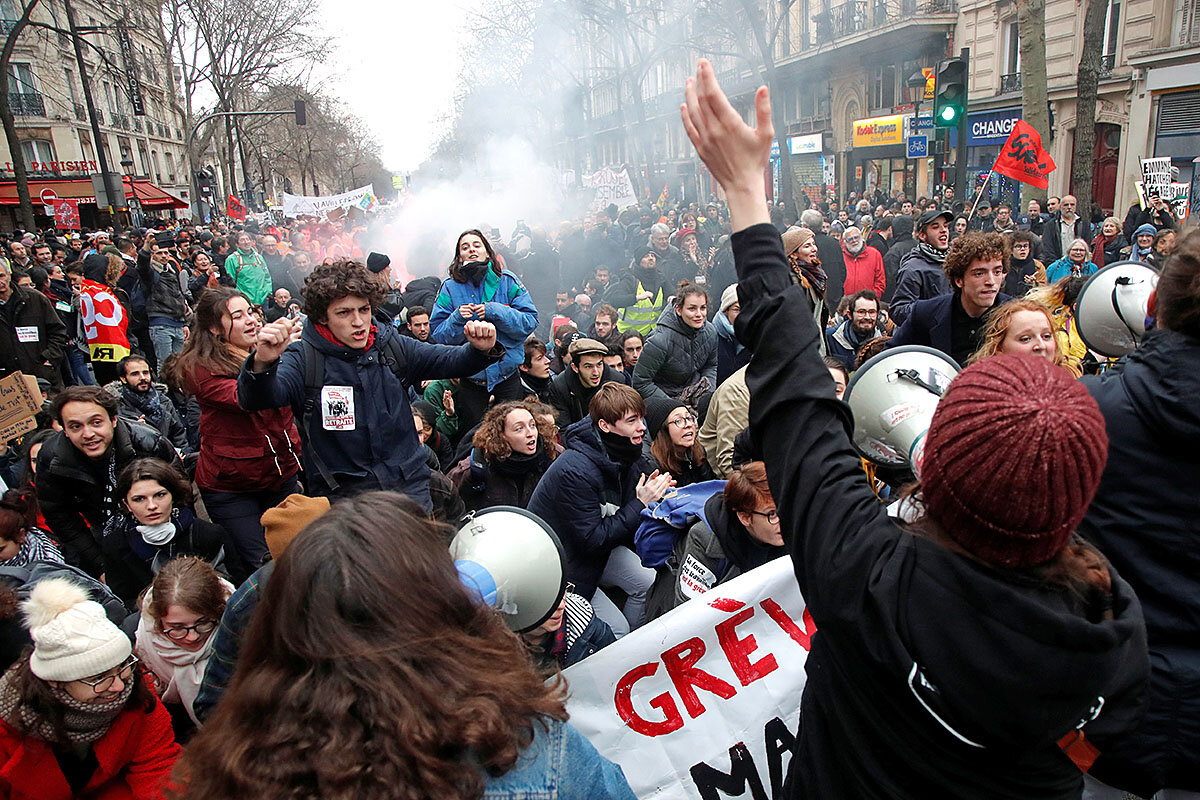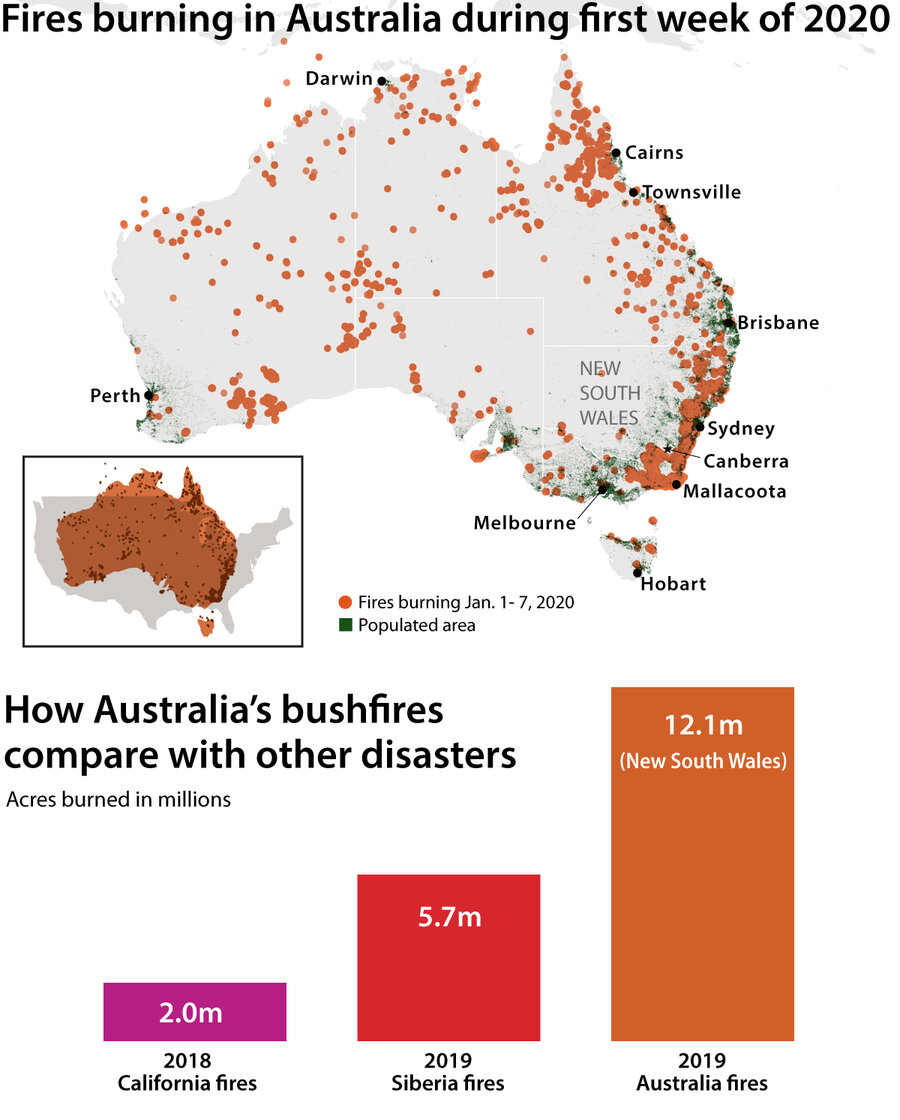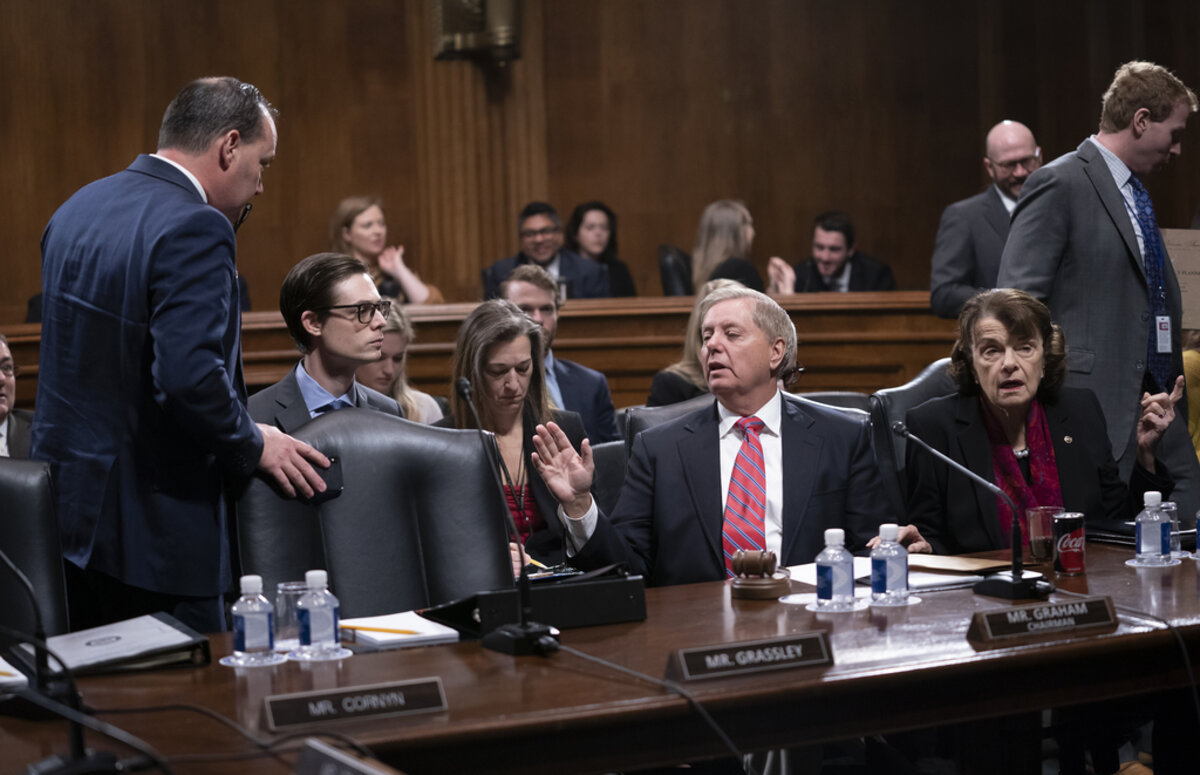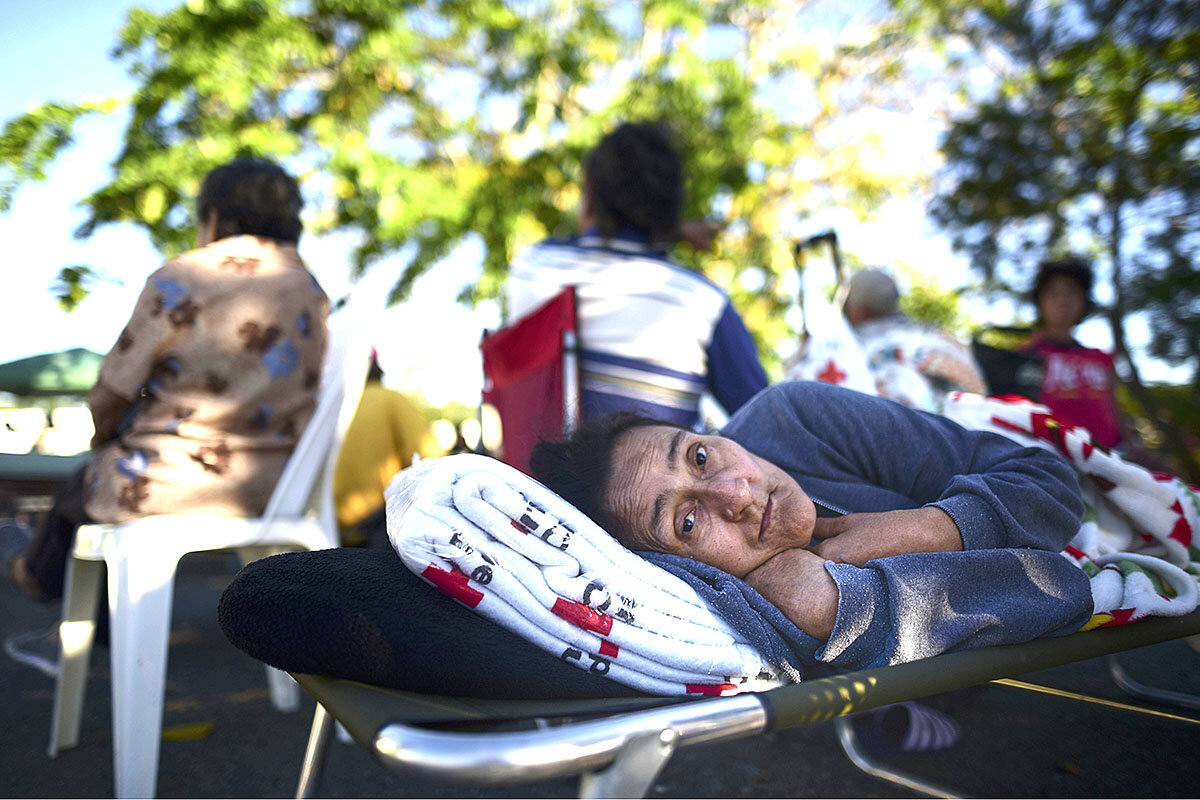Surely in big-government France, people must have faith in their politicians, right? The protests racking the country offer a clear “no.” Few trust the government to reform the generous pension system.
Monitor Daily Podcast
- Follow us:
 Mark Sappenfield
Mark Sappenfield
Today’s five hand-picked stories touch on what new French strikes say about trust in government, the future of the Iran nuclear deal, the stunning scope of the Australian wildfires, a crucial step in rooting out German anti-Semitism, and a firsthand glimpse of homebuying in California.
In all likelihood, you’ve never heard of Martin Gurri. I hadn’t until I read . Mr. Gurri is a former CIA analyst who predicted the current state of political turmoil in his 2014 book, “Revolt of the Republic.”
His insights are fascinating. The very abridged summary is: Democracy worked better in the recent past because governments could largely control narratives. Essentially, governments could tell voters what was right and wrong, and voters would mostly go along.
Well, that’s clearly out the window in this new era of information, and so voters are unifying only around what they reject: elites, “the system,” the “status quo.” Unifying around these vague negations – rather than a positive vision – is not ideal, Mr. Gurri says.
Yet turn back the clock 500 years, and there’s a useful comparison. about how profoundly Johannes Gutenberg’s invention of the printing press disrupted religion, politics, and society, spawning the Reformation and, centuries later, the Enlightenment and modern democracy.
Today, you could argue we’re going through Gutenberg 2.0. And it’s perhaps less important to try to guess where all this is going than to recognize that, for all the bad and good brought by the first information revolution, the balance clearly tips toward the latter.











